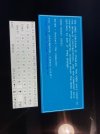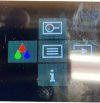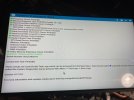Billed1954
New Member
- Reaction score
- 6
- Location
- Thiensville, WI
The whole problem started with a power surge at my client's. I can't believe after 3 replacement motherboards for this Desktop that I have the same exact problem - - COMPUTER will NOT POST, BOOT into Windows 11 without having to reset the CMOS jumpers each time, removing and reinserting brand new CMOS battery (tried 3 of them!), reseating the memory, etc. This is also a touch-screen. I have also swapped RAM and power adapters - updated all firmware to the latest BIOS, updates, drivers, etc. but as long as I reboot when engaged, updating etc., I get back in. The second motherboard I received was incorrect one from the same family HP 24-K019. Both the original motherboard and the current motherboard have the same SP #'s, and the chassis, computer system number come up the same number no matter which motherboard. The original motherboard numbers reference the HP 24-K0024 - and the replacement identifies as HP Pavilion All-In-One 27-d0244 bundle. Each time I reset the jumper cap from 3-4 to 1-2 I can get the BIOS to reset with this Checksum 502 error.

If I try to cold-start the PC after shutdown, this is all I get. What will happen is that this will display for about 30-45 seconds, then will disappear. Shortly afterwards, the screen also shuts down. I can access inside to do a power reset and setting to factory settings does not help. Have to do the battery, jumper, power drain options - Windows shift key + B or V do not help. I have done HP diagnostic hardware tests without detecting a single error - done 3 times. This is driving me absolutely CRAZY - been fighting this for over 2 months - - always lots of BIOS and CMOS with HP products I work with and this one is no exception. I am very WARY of spending on $100 on a out-of-warranty support call where I'm almost certain I'll get the same answers of what generic stuff is out there already, yet I hate to give up on this AIO which runs beautifully once I go thru the CMOS Bios reset each time. THANK YOU for READING and HELP!!


If I try to cold-start the PC after shutdown, this is all I get. What will happen is that this will display for about 30-45 seconds, then will disappear. Shortly afterwards, the screen also shuts down. I can access inside to do a power reset and setting to factory settings does not help. Have to do the battery, jumper, power drain options - Windows shift key + B or V do not help. I have done HP diagnostic hardware tests without detecting a single error - done 3 times. This is driving me absolutely CRAZY - been fighting this for over 2 months - - always lots of BIOS and CMOS with HP products I work with and this one is no exception. I am very WARY of spending on $100 on a out-of-warranty support call where I'm almost certain I'll get the same answers of what generic stuff is out there already, yet I hate to give up on this AIO which runs beautifully once I go thru the CMOS Bios reset each time. THANK YOU for READING and HELP!!


